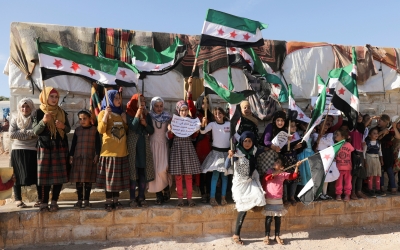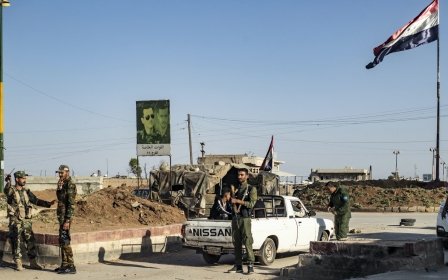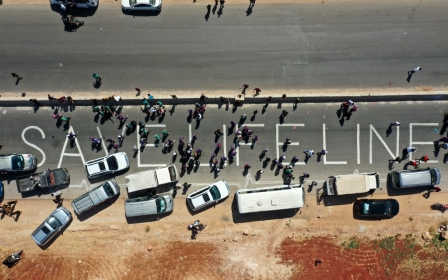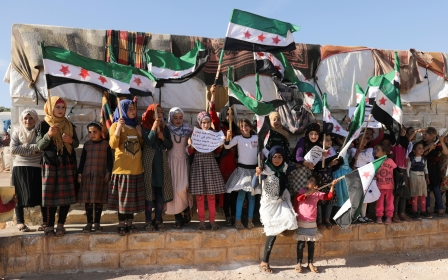UN approves extension of cross-border aid to Syria for 12 months
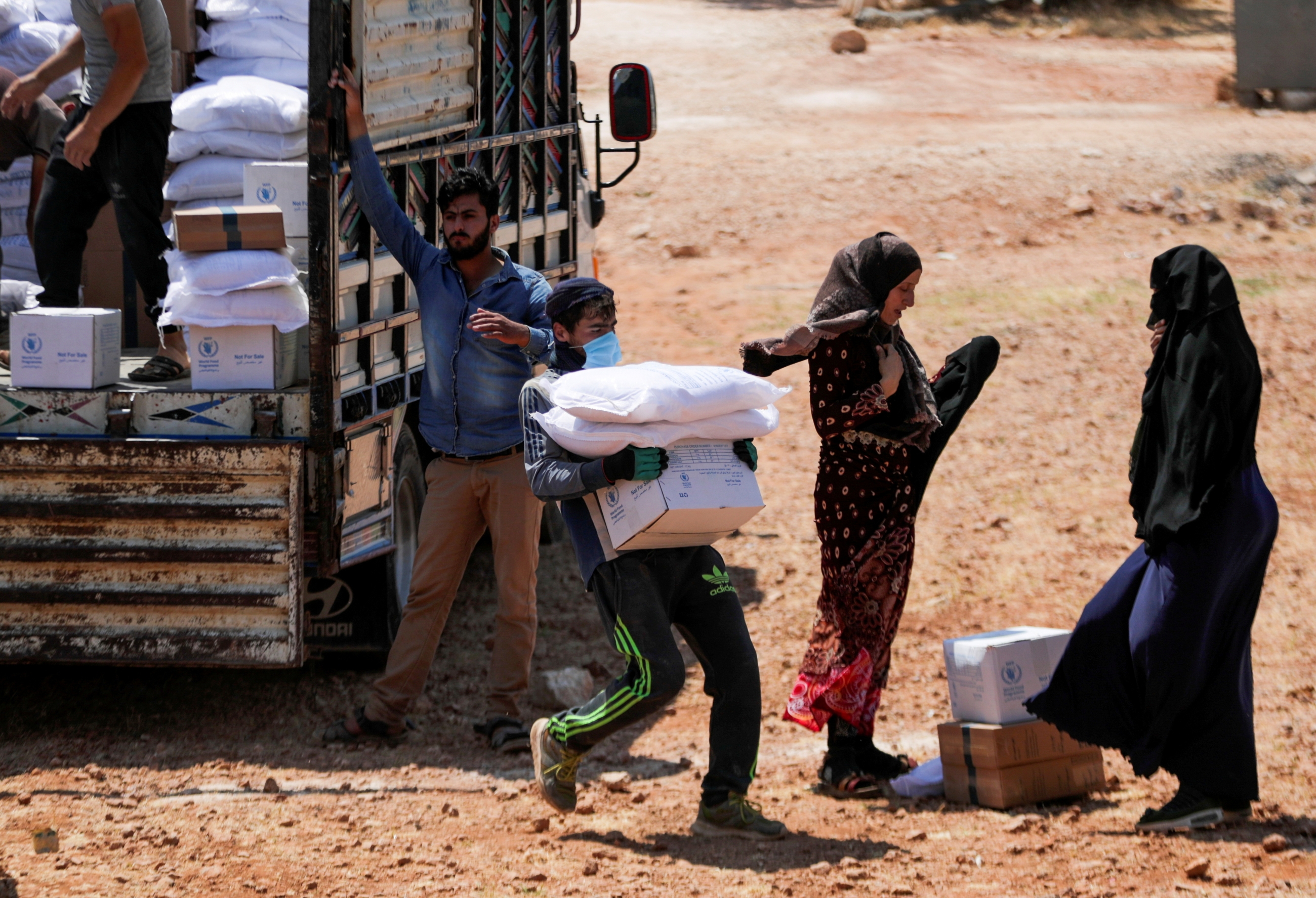
The UN Security Council agreed on Friday to extend a cross-border aid operation into Syria from Turkey for a further 12 months.
The council mandate for the long-running operation, which ensures access to aid for millions of Syrians, was due to expire on Saturday.
The Bab al-Hawa crossing is currently the sole lifeline for millions of people in Syria's northwest who live in areas outside government control.
For nearly a year, Russia had promised to veto any resolution allowing cross-border aid to continue, viewing its distribution to areas held by opponents of President Bashar al-Assad as a violation of Syria's sovereignty.
However, in a last-minute joint agreement, Russia and the US approved the cross-border aid extension for an additional 12 months.
The 15-member council unanimously adopted the compromise resolution, which asks for a UN report on Syria aid access after six months.
However, diplomats said it does not require another vote in January to again extend the cross-border operation, Reuters reported.
Linda Thomas-Greenfield, US ambassador to the UN, said "millions of Syrians will not have to worry about starving to death in the coming weeks. Today's successful adoption averted a catastrophe for a population that has already suffered too much."
She said the US and Russia "were able to come together on a humanitarian initiative that serves the Syrian people".
Vassily Nebenzia, Russia's UN ambassador, said during the council meeting that "the text of the resolution today is a milestone on the path towards resolving the Syrian crisis and overcoming its consequences.
"Today, we are witnessing a historical moment," he added. "For the first time, Russia and the United States not only managed to find an agreement, but to present a joint text."
UN divisions over Syria
The Security Council has been divided over the decade-long war in Syria, as Russia and China - two of the five permanent members with veto powers - side with the Assad government, while western members had for years sought regime change, backing rebel forces.
Damascus, Moscow and Beijing have worked to block certain border crossings to impede aid access to rebel-held territories. Since the start of the Syrian war, Russia has vetoed 16 council resolutions, often with support from China.
The Syrian conflict started in 2011, following the brutal repression of peaceful demonstrations, and, according to the UN, has resulted in an estimated 500,000 deaths.
During the war, government forces laid siege to rebel strongholds for years before pushing them to flee towards northern Syria. In many cases, health conditions collapsed and people died under the influence of poverty and starvation.
Some besieged civilians were forced to eat leaves on the outskirts of Damascus and Homs, where aid, which was entering through government-controlled border crossings, did not reach.
The Syrian government lambasted Friday's agreement, calling the resolutions to extend the mandate for the border crossing "flagrant violations of the sovereignty, territorial integrity, and independence of Syria".
"My delegation believes that the exaggerations in describing this mechanism as a lifeline for the Syrian people is a fallacy," said Syria's permanent representative to the UN, Bassam Sabbagh.
Sabbagh added that the country was not consulted on the draft resolution, accusing the nations who penned the agreement of "hiding their positions".
A vital lifeline
For most Syrians living in the country's northwest, the aid crossing has been a vital source of support.
There are 4.2 million people in Idlib alone, 80 percent of whom are dependent on the Bab al-Hawa border crossing.
Still, Khaled al-Ramla, a displaced person from the village of Hazano, north of Idlib, said food aid had not reached his camp for months.
"The displaced have lost all their property and are still contemplating the arrival of aid despite its scarcity. Closing the crossing will push the displaced to death," he told Middle East Eye.
"Some displaced people [earn] at least 800 TL per month [$100], and rely mainly on relief for life, at least like water."
'Closing the crossing will push the displaced to death'
- Khaled al-Ramla, internally displaced Syrian
Hisham Hajji, another displaced person residing in a tent north of Idlib, said stopping aid was like stopping the last lifeline, given that most of the displaced are unable to provide for their daily expenses.
Sufyan al-Hassan, a displaced person from the city of Saraqeb, east of Idlib, said most Syrians had become dependant on aid because agriculture, their main source of income, had been disrupted by the war along with trade and small factories.
"There are no jobs, 70 percent of civilians depend on relief, whether by consuming them or selling them to buy other supplies," Hassan said.
Aid agencies breathed a sigh of relief after the UN's extension of the border-crossing mandate, saying they will now be able to continue their long-term humanitarian projects without worries of sudden closure.
Talha Keskin, international relations coordinator at the Turkey-based Humanitarian Relief Foundation (IHH), said prior to Friday's meeting, "there was a great concern among the NGOs that carry out crossborder aid activity under UN's coordination and funding.
"These NGOs felt relieved after the resolution was renewed for one year since they are now able to maintain their long-term projects."
Middle East Eye delivers independent and unrivalled coverage and analysis of the Middle East, North Africa and beyond. To learn more about republishing this content and the associated fees, please fill out this form. More about MEE can be found here.


